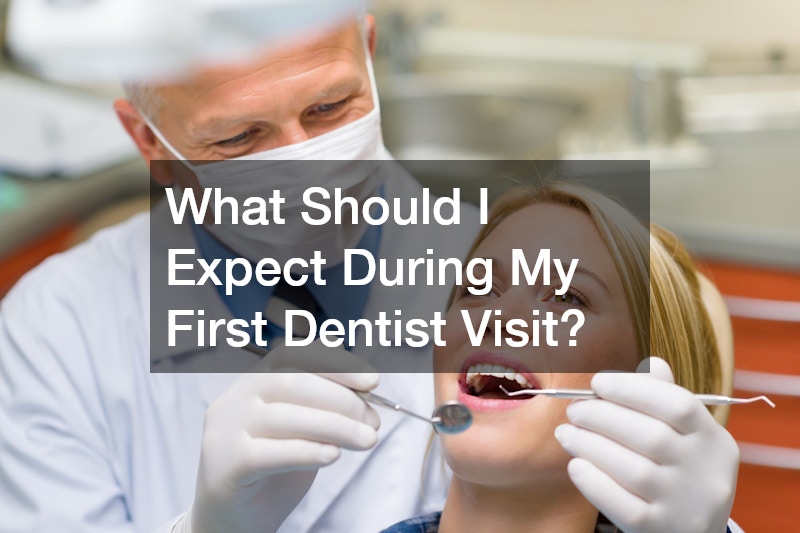
Your first visit to a dentist might feel a bit daunting, but understanding the process can help ease your nerves. This article will guide you through what to expect and answer common questions about the experience.
During your first visit, a dentist will conduct a thorough examination of your teeth, gums, and mouth to evaluate your oral health and identify any immediate concerns. They will check for signs of decay, gum disease, and assess your overall dental hygiene.
Video Source
This initial examination is critical as it establishes a baseline for your dental health, which will be important for future visits. The dentist may use a small mirror to view and access hard-to-see areas in your mouth.
Your initial experience at the dentist sets the tone for your future visits, so don't hesitate to ask questions about any observations they make. The fact that regular dental visits can prevent a range of complex dental problems underscores the importance of starting this routine care early.
X-rays are often performed to provide a detailed view of the teeth and jaw, allowing the dentist to detect dental problems that aren't visible during the initial examination. This diagnostic tool can reveal issues such as tooth decay, abscesses, and impacted teeth.
Not every patient will need X-rays during their first visit, as the necessity varies depending on age, risk of disease, and any signs of dental issues the dentist might observe. Dentists usually discuss the need and type of X-rays they recommend to ensure you are clear about its purpose.
It is important to have your medical history available, along with a list of any medications you are taking, to ensure the dentist has a complete understanding of your health background. This helps the dentist provide safe and optimal care tailored to your specific needs.
Your medical information can influence dental treatment, especially if there are conditions like diabetes or medications that cause dry mouth, which can affect oral health. Updating the dentist about any changes in your health status ensures better, more coordinated care.
Patients should also inform their dentist about any allergies, past dental procedures, and any specific dental concerns or sensitivities they have. This crucial communication fosters a trusting relationship between you and your dentist, improving your overall dental care experience.
Brushing and flossing your teeth before the appointment is recommended, but avoid any procedures that might irritate your gums. Ensuring that your mouth is clean enables the dentist to better assess your teeth and gums without the obstruction of food particles.
Good pre-appointment hygiene demonstrates your commitment to oral care, which can also prompt productive conversations with your dentist about your current routine and possible improvements. It's also beneficial to rinse your mouth with water or mouthwash if you have had a meal prior to your visit.
However, it's important to note that cleaning your mouth excessively right before your dentist visit is unnecessary and may sometimes result in irritation. Maintaining regular oral hygiene routines at home lessens the need for last-minute scrubbing, ensuring your gums remain healthy and unprovoked.
Many people worry about experiencing pain during a dental visit, but modern techniques and tools are designed to minimize discomfort. Dentists are skilled in using local anesthesia and various techniques to ensure procedures are as pain-free as possible.
Discussing your fears with your dentist can lead to tailored solutions that address your specific concerns. Dentists understand that anxiety is common and will take extra steps to explain procedures to alleviate your worries.
It's beneficial to know that routine visits typically don't involve painful procedures, especially when good oral hygiene is maintained. Trusting your dentist and keeping an open line of communication can significantly enhance your comfort during dental visits.
Financial concerns are common, but many dental offices offer payment plans, and discussing costs upfront can help alleviate worries. Transparency is key, ensuring that you understand treatment options and associated costs from the beginning.
Understanding what to expect during your first dentist visit can help you feel more confident and prepared. By knowing what will happen, how to prepare, and addressing common concerns, your visit can be a positive step towards maintaining good oral health.
The comprehensive examination, X-rays, and discussions you’ll have with your dentist will form the foundation for your ongoing dental care. These initial steps are crucial in preventing long-term oral issues, emphasizing the value of early and regular dental visits.
.